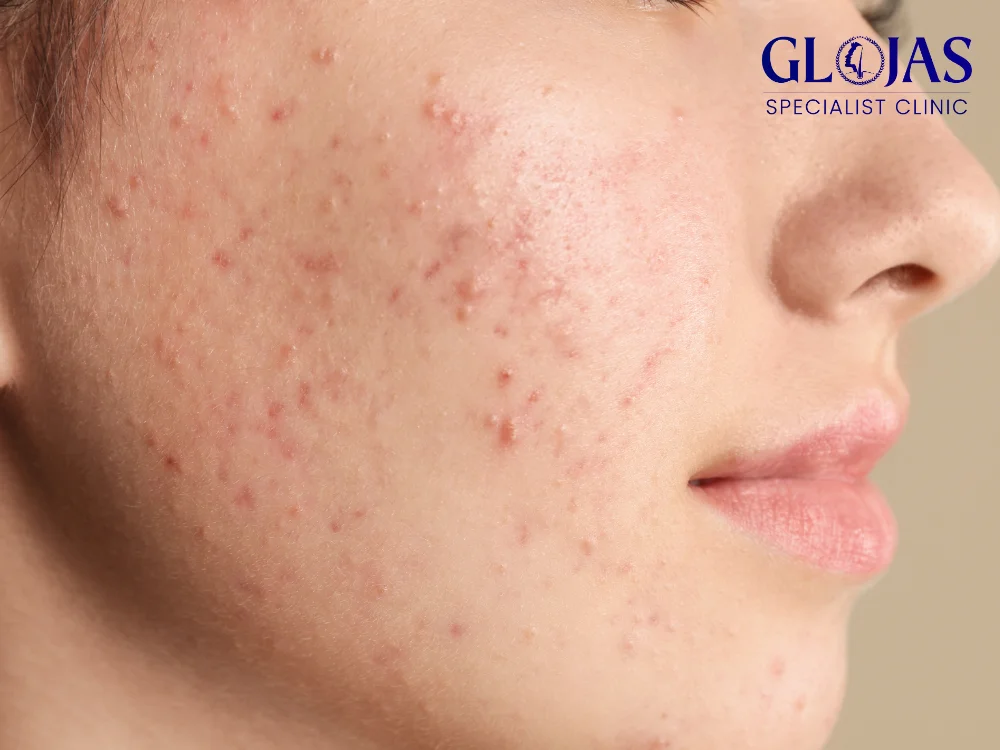5 Powerful Ways Fractional CO2 Laser Effectively Treats Acnescar

Dealing with persistent acne scars can be frustrating and emotionally challenging. While acne itself is a common skin condition, the scars it leaves behind can often last much longer, affecting both appearance and self-confidence. One of the most effective treatments available today for acnescar removal is the Fractional CO2 Laser. This advanced technology has gained popularity for its ability to reduce the appearance of scars, stimulate collagen production, and give the skin a smoother, more youthful look. In this article, we’ll dive into how the Fractional CO2 Laser works, the benefits it offers for acnescar treatment, and what you can expect from the procedure. What is an Acne Scar and How Does It Form? Before exploring treatments, it’s essential to understand how acnescar forms. Acne scars are the result of inflammation caused by acne lesions like pimples, cysts, or pustules. When the skin’s tissue is damaged by acne, the body attempts to heal itself by producing collagen. However, if too little or too much collagen is produced, it leads to scarring. The two main types of acnescar are: Atrophic Scars: Depressed or sunken scars, such as ice pick, boxcar, and rolling scars, caused by a loss of tissue. Hypertrophic Scars: Raised scars caused by excess collagen production during the healing process. Each type of scar requires different approaches to treatment, and this is where the Fractional CO2 Laser excels. How Does Fractional CO2 Laser Work for Acne Scar Treatment? The Fractional CO2 Laser is an advanced skin-resurfacing procedure that uses targeted laser beams to create controlled micro-injuries in the skin. These micro-injuries trigger the body’s natural healing response, stimulating collagen production and encouraging the formation of new, healthy skin cells. Over time, this process helps to reduce the appearance of acnescar by smoothing the skin’s texture and evening out the skin tone. Here are the main ways Fractional CO2 Laser effectively treats acne scars: 1. Deep Penetration for Effective Scar Reduction The Fractional CO2 Laser penetrates deep into the skin layers, targeting the root of the scar tissue. It works by vaporizing tiny columns of skin, known as microthermal zones, which stimulate the body’s natural repair process. This deep penetration ensures that even the most stubborn and severe types of acnescar can be treated. 2. Stimulates Collagen Production One of the key factors in the healing process of acnescar is collagen. Collagen is a protein that plays a vital role in maintaining skin elasticity and structure. When the Fractional CO2 Laser creates micro-injuries in the skin, it triggers a surge of collagen production, which helps fill in depressed scars and smooth the skin’s surface over time. 3. Precision Treatment with Minimal Downtime Unlike older laser treatments that remove the entire top layer of skin, the Fractional CO2 Laser treats only a fraction of the skin at a time. This means that it leaves untreated skin between the laser-treated areas, which promotes faster healing. Patients can typically return to their regular activities in a few days, making this a convenient option for those seeking acnescar treatment without extended downtime. 4. Reduces Hyperpigmentation Many people with acnescar also suffer from post-inflammatory hyperpigmentation (PIH), which causes dark spots on the skin. The Fractional CO2 Laser not only improves the texture of the skin but also helps reduce the appearance of pigmentation issues by promoting the turnover of skin cells. As new, healthy skin replaces damaged cells, both scars and discoloration fade. 5. Long-Lasting Results The results of Fractional CO2 Laser treatment are long-lasting. Once collagen production is stimulated, the skin continues to improve for several months following the procedure. This makes it an excellent choice for those looking for sustainable solutions to their acnescar issues. With proper skin care and maintenance, the improvements can last for years. What to Expect During a Fractional CO2 Laser Treatment If you’re considering Fractional CO2 Laser for your acnescar, it’s important to know what to expect from the procedure. Here’s a brief overview of the process: 1. Initial Consultation During your initial consultation, a dermatologist or skin specialist will assess your skin type, the severity of your acne scars, and discuss your treatment goals. This step is essential to ensure that Fractional CO2 Laser is the right option for you. 2. Preparation Before the treatment, the skin is cleaned, and a topical anesthetic may be applied to minimize discomfort. Some patients may also be given oral pain relievers or sedatives if the treatment area is large. 3. The Procedure The Fractional CO2 Laser device is then applied to the skin, delivering precise laser beams to the target areas. The procedure typically takes 30 to 60 minutes, depending on the size and severity of the treatment area. 4. Post-Treatment Care After the procedure, you may experience redness, swelling, and mild discomfort, similar to a sunburn. These symptoms usually subside within a week. Your doctor will provide aftercare instructions, which may include using a gentle cleanser, moisturizer, and sunscreen to protect your skin while it heals. Benefits of Fractional CO2 Laser for Acne Scar Treatment The Fractional CO2 Laser offers several benefits over other acne scar treatments: Non-Invasive: The treatment does not require any incisions or invasive techniques. Versatile: It can treat various types of acnescar, from mild to severe. Quick Recovery: Minimal downtime, with most patients resuming normal activities within a few days. Customizable: The intensity of the treatment can be adjusted based on your skin type and specific needs. Comprehensive Results: Improves both the texture and pigmentation of the skin. Is Fractional CO2 Laser Right for You? While Fractional CO2 Laser is highly effective for many individuals, it may not be suitable for everyone. Ideal candidates for this treatment are those with moderate to severe acnescar who are in good overall health. However, people with darker skin tones may be at risk of developing pigmentation issues, and this should be discussed with a dermatologist before proceeding. It’s also important to have realistic expectations about the results. While Fractional CO2 Laser can






